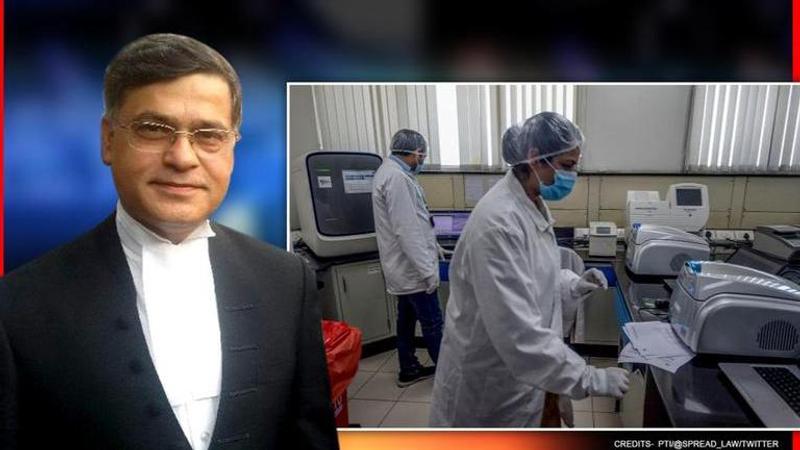Published 22:35 IST, April 15th 2020
Supreme Court's order enabling private labs will help India's battle against COVID-19
The SC's April 13 order which allows private labs to charge government prescribed charges, enhances our medical capability in the battle against COVID-19.

The recent April 13 order of the Supreme Court on COVID 19 testing which lets private laboratories charge government prescribed cost/charges is a huge relief not only for the private labs who sought modification of SC’s directions of 8th April 2020 but enhances our medical capability in the battle against the virus that originated in Wuhan.
Till the 3rd weekend of March 2020, the government had still not permitted private laboratories to do COVID 19 testing. Finding that enabling private facilities to test would provide greater reach in efforts to stem the spread of the virus while easing the burden on grossly overburdened government medical facilities, a comprehensive framework for testing by private laboratories was put in place. A price band to cover tests of sample collection, safety standards (PPE) using government prescribed testing kits was prescribed with each test being approved in real-time by ICMR based on its protocols. There were many hiccups with initial shortages of PPE kits, testing kits, stoppage and questioning of doctors/ at police pickets and health hazards involved and local area resistance to home visits, yet the private laboratories persevered.
Apex court passes sweeping interim directions
When the PIL first came up on April 8, 2020, the Bench acting in furtherance of its mandate to promote health (as a facet of Article 21 of the Constitution) passed sweeping interim directions mandating free testing while deferring the issue of reimbursement of private laboratories. It appears that though the Writ petition questioned a policy issue, (which courts are normally reluctant to do), the petitioner appears not to have placed crucial facts relating to the policies of testing and pricing, nor does the Central government appear to have sought adequate time to do so at the first hearing. The private laboratories were not before the court at the time though the order had a material impact on their functioning.
The 8th April 2020 court order reflects that material facts, such as ICMR’s fixation of the amount chargeable by private labs and costs involved, as also that the ICMR was regulating each test, appear not to have been highlighted. Nor was the existence of existing government schemes such as Ayushman Bharat or state-run schemes for medical reimbursements for the poor (to enable free testing) placed before the Supreme Court in the first instance as is indicated by its subsequent order of 13th instant. Though it was the Central government or state governments that should have sought modification of the April 8 order, but it was eventually the private laboratories that had to move the court for modifying its earlier order. That the court has now modified its earlier order re-enabling private labs to be compensated for testing, is a matter of great relief.
Yet, a larger issue remains of PIL’s (public interest litigation) being filed and heard by constitutional courts, without adequate information being supplied by the PIL petitioner. The consequent passing of interim orders on such pleadings can have a far-reaching nationwide impact. This is a matter which requires introspection, for had the interim order continued in its original form, its implementation may have caused grave damage to the battle against the virus which is at its most crucial stage.
Author of this article, Sidharth Luthra is a Senior Advocate, Supreme Court of India and former Additional Solicitor General.
(The views and opinions expressed within the article are the personal opinions of the author. The facts, analysis, assumptions and perspective appearing do not reflect the views of Republic TV/ Republic World/ ARG Outlier Media Pvt. Ltd.)
Updated 23:31 IST, April 15th 2020



